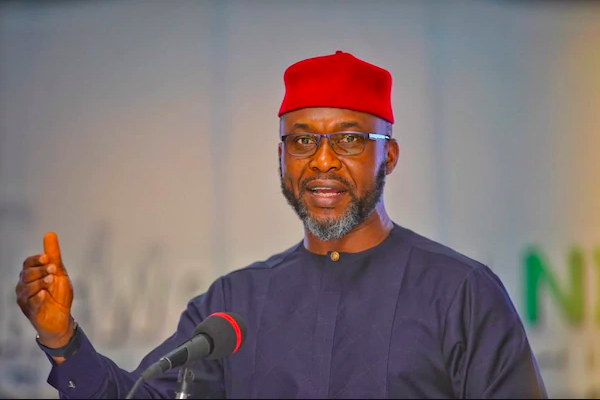
A former Minister of Aviation, Osita Chidoka, on Friday said he ran into trouble with the National Assembly (NASS) “and other big men” who were upset about his refusal to allocate slots to them during his time as boss of the Federal Road Safety Corps (FRSC).
POLITICS NIGERIA reports that Chidoka was appointed by former President Olusegun Obasanjo in 2007 as the Corps Marshal and Chief Executive of the FRSC at the age of 35, making him the youngest ever to hold the position. In 2011, he clashed with federal lawmakers over his “insistence on competitive recruitment and computer-based promotion examination that rewarded merit while recognising federal character”.
Revisiting the issue, Chidoka harped on merit-based civil service.
He wrote on his known Facebook page: “Some weeks ago, on one of my trips to Lagos, a lanky well smartly dressed young officer of northern extraction in uniform approached with a smart salute. I looked at him and did not recognise him. He introduced himself as the FRSC Unit Commander at Abuja Airport. I replied perfunctorily and continued to the security. After security, he said “Sir, I waited for a while to greet you because I was recruited during your time in 2011 and I am in Batch A”. That got my attention.
“I said you are already a unit commander? How time flies. He said “many of us in Batch A are Unit Comanders (that is the equivalent of a Police DPO). I proceeded to board my flight.
“As I landed in Lagos, a female officer with a yoruba name approached me, salutes smartly and greeted very warmly. Again I did not recognise her. She said “Sir I am a 2011 recruit Batch A” I took a second look at her immediately and said I just met the Abuja UC and he said he is 2011 recruit Bath A too. You all have done well.
“2011 recruit Batch A (also called Chidoka boys) group were those who went through rigorous physical tests and took the JAMB conducted recruitment examinations. The result came out the following day and the top 70% in every state were offered immediate employment. No note, no intervention. They were home and got letters of employment.
“The 30% that make up Batch B were those who scored above 50% and chosen to reflect gender, areas poorly represented and other interests. If you did not score 50% and above we dropped you from the process.
“It was that recruitment that caused my troubles with NASS and other big men who were upset I did not allocate slots to them. I stood my ground. I paid dearly for it when they used the drivers license and number plate re-issuance as an opportunity to “deal” with me. I was young and bustling with idealism so it did not matter to me.
“My proudest legacy in public service is my insistence on competitive recruitment and computer-based promotion examination that rewarded merit while recognising federal character. We can have both as a nation. The idea that our public service is a place for only those who have access to big men for employment is at the root of our national failure.
“Public servants now owe loyalty to their sponsors and not to the state. The Nigerian public servant cannot deliver public goods if the recruitment process favour those with unequal access. Time for the elites to rethink recruitment as a favour and commit to merit-based transparent process as a national irreducible minimum.
“The failure to secure our citizens by law enforcement agencies, deliver honest judgment by the judiciary or deliver electricity, pipe-borne water and infrastructure is linked to a failed recruitment process of public servants with no loyalty or commitment to the State. We, the elites have hijacked the loyalty of public servants and in the process denied the country that service abobe self thatnis the hallmark of public service.
“Can the next National Assembly legislate and commit to a transparent recruitment that requires government agencies to
1. Pre-set and annouce the minimum national pass score,
2. Advertise vacancies,
3. Use JAMB or NECO to conduct examination,
4. Publish the result with the cutoff score of each state and
5. list those employed with score
“This is the process in Rwanda, so it is doable. The elites need to commit to rebuilding Nigeria through non-interference with appointments, promotion and discipline of public servants. The rising insecurity, poor governance outcomes and destruction of national values should be impetus to try a new beginning.
“States and local governments can lead the way. The time is now.”
